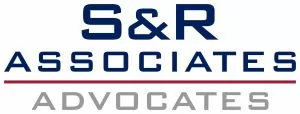The role of independent directors has recently come into sharp focus in India, as lax oversight has led to crises at large listed companies. Independent directors should be aware of and mitigate potential liabilities.
Liabilities
Directors of a company are governed by the Companies Act, 2013 (act), and the Securities and Exchange Board of India (Listing Obligations and Disclosure Requirements) Regulations, 2015 (LODR) (recently amended to incorporate recommendations of the Uday Kotak-led Committee on Corporate Governance).
Under the act, fraud is punishable by a minimum fine equivalent to the amount involved and a maximum of up to three times the amount, as well as imprisonment of between six months and ten years. Fraud is a congnizable offence. Liabilities can arise from making materially false statements or knowingly omitting material facts in any return, financial statement, prospectus or other documents; knowingly or recklessly making false statements to obtain credit facilities; or giving false information in an investigation. The act imposes unlimited personal liability for fraud. Directors may also be subject to civil and criminal penalties as an "officer in default" of the company, and fines or other actions by the stock exchange.
In the Sunil Bharti Mittal v Central Bureau of Investigation (2015) case, the Supreme Court held that an active role with criminal intent or specific statutory provisions would be required to impose criminal liability on an individual. The act includes a Code for Independent Directors (schedule IV), and section 166 lists the duties of all directors (contraventions are subject to fines of ₹100,000 (US$1,400) to ₹500,000). Independent directors are under greater scrutiny in financial matters, as they make up two-thirds of a board's audit committee under the LODR, including the chairmanship, and oversee the integrity of financial information, risk management and a company's vigil mechanism.
SEBI has held that independent directors are required to exercise reasonable care, diligence and skill to ensure that the financial statements are correct, sufficient and credible. Overlooking financial "red flags" and failing to ask appropriate questions would be tantamount to facilitating false and misleading disclosures. Independent directors are required to declare that they meet the criteria for independence annually and promptly report changes. They also review board performance and information flow to the board. A breach of such duties may involve liabilities. Directors may also be liable under laws regulating the company's business.
Mitigation
Independent directors are only liable for the company's acts of omission or commission that occurred with their knowledge, attributable through board processes, and with their consent or connivance, or where the directors did not act diligently. "Connivance" has been distinguished by courts from consent in that connivance does not require the parties to be of one mind.
Independent directors must seek and securely maintain updated records of board and committee proceedings and other matters. They should ensure that dissents on resolutions are recorded. Independent directors should engage or identify counsel, independent of the company's and the board's lawyers. Directors should understand the company's business model, operations and systems, especially financial controls, and seek expert input where warranted.
Any fraud should be reported promptly, and detailed questioning should follow unusual proposals, including, but not limited to, entry into new businesses, sale of assets or an initial public offering to meet liquidity concerns, related party transactions, payments described as "cash management" or treasury operations, significant investments in unlisted subsidiaries and changes in auditors, finance personnel or accounting treatment.
Directors should review the company's articles of association and its directors' and officers' (D&O) insurance policy to see if indemnity or insurance is available, whether there are exclusions, and if the appointment of separate counsel is covered. A recent LODR amendment requires the top 500 companies by market capitalization to have D&O insurance for all independent directors.
Companies can indemnify directors under the articles of association or by agreement, and may adopt a different standard from the optional Table F article, which limits indemnification to cases of acquittal or judgment granted to the director. Resignation does not by itself protect directors from liability for the period served, and from 1 April 2019, the LODR requires disclosure of detailed reasons for the resignation.
The content of this article is intended to provide a general guide to the subject matter. Specialist advice should be sought about your specific circumstances.



